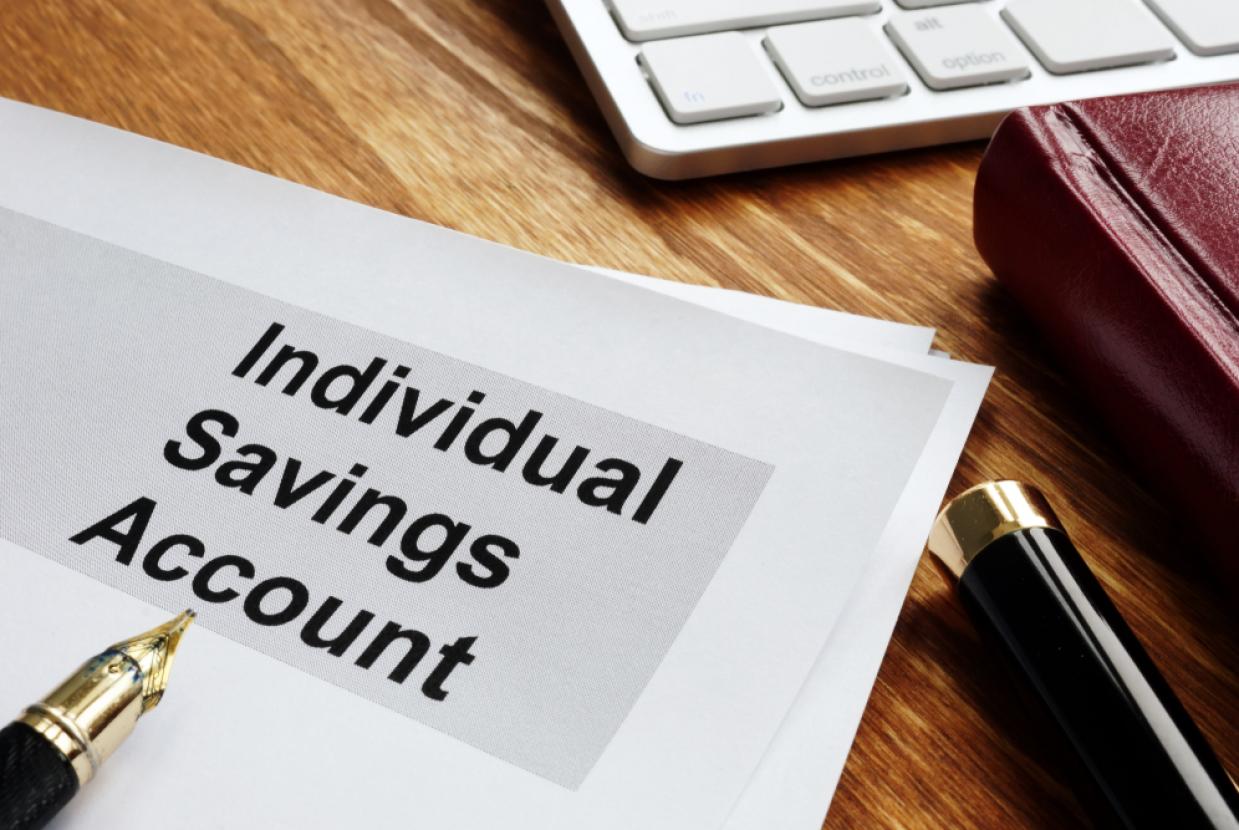How Does Remortgaging Work?
Switching from your existing mortgage deal to a new one could cut your monthly mortgage bill and save you hundreds – even thousands - every year. But before you switch it’s vital to check that remortgaging is the right move for you. Here’s what you need to know.
What is remortgaging?
A remortgage is when you get a new mortgage with a different lender, but you stay in your current home. It’s not the same as borrowing more money from your current lender.
You can remortgage anytime, but there might be fees to pay to switch deals.
How remortgaging can save you money
When you first took out your mortgage, you might have signed up for the most competitive deal at the time. But as this ends and new deals become available, there might be a cheaper option available to you from another lender.
Your current lender might even be able to offer you a new deal. This is called a ‘product transfer’.
If your fixed-rate has ended you might be able to save money
Introductory deals normally last for between two and five years.
Once the deal ends, you’ll probably be moved onto your lender’s standard variable rate (SVR).
SVRs will usually be higher than other rates you might be able to get elsewhere.
When your introductory period ends you need to check to see if switching to a new mortgage deal will save you money.
If you only have a small amount left to pay off your on mortgage, the savings from switching might be too low to make it worthwhile.
It’s also worth reviewing options before interest rates are expected to change.
See how remortgaging can save you money
With fees, charges, and interest rates to consider it might seem difficult to know if you’d be better off switching. But depending on the charges for switching, you could save money.
Here's an example of some options you might be given on a 20-year mortgage, now worth £200,000 to help you decide. For simplicity, it assumes your interest rate is charged monthly and stays the same over the whole term.
Remortgaging examples
Your mortgage deal | Stay on current deal | Option 1 | Option 2 |
Interest rate | 5% | 4.5% | 4.4% |
Arrangement or product fees (added to mortgage) | 0 | 0 | £2,000 |
Total cost of mortgage over 20 year term | £316,876 | £303,572 | £304,102 |
Total interest charged over 20-year term | £116,876 | £103,572 | £102,102 |
Total monthly payment | £1,320 | £1,256 | £1,267 |
Table scroll
In this example, you’d pay almost £15,000 more in interest charges on your current deal.
How to compare these mortgage deals
Both options 1 and 2 make monthly repayments and the total cost of your mortgage cheaper compared with sticking to your original deal.
Option 1:
- £64 cheaper every month
- Saves £13,304 in interest over the term of your mortgage.
Option 2:
- £53 cheaper every month
- Saves £14,774 in interest over the term of your mortgage.
But even though option 2 has the lowest interest rate, the arrangement fee added to the mortgage means your monthly repayments and overall costs are higher than option 1.
You should also consider what additional fees might be involved in moving lender. If you have an early repayment charge to exit your current deal, it may not be as beneficial as it initially looks.
To get an idea of what you might pay if you remortgage, speak to a mortgage adviser.
Remortgaging costs to consider
To compare your current mortgage deal with a new one you need to factor in certain costs, as sometimes these can add up and make remortgaging more expensive than staying on your current deal.
Check for fees on new deals
A new deal can save you money and it could be tempting to jump in, but first you need to check if there are any fees on the new mortgage deals you’re looking at.
Look out for charges on your existing deal
If you’re ending your mortgage deal early, check any early repayment charges from your existing lender.
Check any extra administration costs
Before you switch, be sure to check for any administration or other costs. Some lenders might offer to pay some or all of your fees for moving to them or provide cashback. But if they don’t, you’ll have legal, valuation and administration costs to pay.
Mortgage repayment calculator
Work out different monthly repayment mortgage using our mortgage repayment calculator.
Can you remortgage early?
While you can remortgage at any time, most people remortgage when they get to the end of their fixed or discount rate term. This is when your mortgage might stop being a good deal.
Before you switch lenders
Lenders have strict rules to look closely at whether you can afford a mortgage repayments. .
You’ll have to provide proof of your income and all your outgoings. Lenders will also check how you would cope with an increase in the interest rate or changes in your lifestyle such as losing one person’s income if you’re a couple.
So before you switch, check your remortgage costs and compare with products from your current lender to see if there's deals they'll offer you or product transfers that don't require an affordability assessment if you're struggling to get a new lender to accept you.
If you’re looking to move, remortgaging might not be the right option
If you’re thinking of moving house soon you should think carefully before remortgaging and locking into a new deal with large early repayment charges
If you know you’re likely to move, consider deals with low or no early repayment charges.
Most mortgages are now ‘portable’ meaning they can be moved to a new property. But moving is still treated as a new mortgage application, so you will need to meet the lender’s affordability checks and other criteria to be approved for the mortgage.
If you’re likely to move, watch out for:
- Affordability checks. If you don’t pass the checks, then your only option might be to approach other lenders, meaning you’ll have to pay your existing lender’s early repayment charge.
- The need for extra borrowing. ‘Porting’ a mortgage can often mean only the existing balance remains on the current fixed or discount deal.
- If you are looking to upsize and increase your borrowing, you might need to choose a completely new deal- with fees and charges - for the extra amount. However, a new deal is unlikely to tie in with the timescale of your original loan. Meaning you’ll have to renew at different times.
- One thing to consider would be to put all your borrowing on a new deal. Seek advice as one option could be much cheaper over another depending on your circumstances.
When to review your mortgage
It's a good idea to keep an eye out for better mortgage deals. If you do nothing when rates change or your mortgage deal ends, you might lose out on many better deals that are available in the market.
The most vital times to review your mortgage are:
- When interest rates change. This will affect how competitive your current deal is.
- When your current mortgage deal comes to an end. When you move to a standard variable rate (SVR), your rate might increase.
- A regular annual ‘horizon scan’. If you’re not tied in to deal with early repayment penalties, see how your current deal compares to new deals that have come onto the market.
Set up a reminder to review your mortgage
Set up a reminder now to review your mortgage regularly – or up to six months before your current fixed deal ends. You might save yourself hundreds of pounds.
Set a diary reminder to start shopping around at least six months before your current fixed or discount deal reverts to the lender’s SVR.
How reducing your loan-to-value could help you get a better rate
Every mortgage deal has a limit to how much you can borrow when compared with the current value of the property.
This is shown as a percentage and is called the ‘loan-to-value’ or LTV. It is shown as a percentage of you property which is financed by your mortgage. Your LTV usually goes down the longer you repay your mortgage. It can also go down if your property’s value increases.
Why a lower LTV can help you get a cheaper deal
Set up a reminder now to review your mortgage regularly – or up to six months before your current fixed deal ends. You might save yourself hundreds of pounds.
Set a diary reminder to start shopping around at least six months before your current fixed or discount deal reverts to the lender’s SVR.
How to calculate your loan-to-value
- Divide your outstanding mortgage amount by your property’s current value.
- Multiply the result by 100.
Example
- your outstanding mortgage is £250,000
- your lender thinks your property is worth £300,000
- 250,000 divided by 300,000 = 0.83
- 0.83 x 100 = 83 – so your loan-to-value is 83%.
Visit MoneyFacts compare to see the different rates, lower LTVs and how much you might save.
If you’ve saved money by remortgaging, and you’re wondering whether to pay off your mortgage early, read our guide Should you pay off your mortgage early?
How to find out your home’s value
- check whether your property might have risen in value on Zoopla
- look for similar properties for sale in your postcode on Rightmove
- use the house price index calculator at Nationwide.
Your lender’s valuation
When you apply for a mortgage, the lender’s valuation might just involve checking the outside of the property from the street.
If you think the valuation is too low and you’re losing out on a better rate as a result, ask the lender to reconsider.
To support your case, you could:
- provide evidence of the sale price of a few similar properties in your area
- list the cost of any home improvements you’ve carried out.
How remortgaging could offer you more flexibility
Remortgaging might also help you to get a deal that offers extra flexibility or has features that can save you even more money.
Flexible features you might want to consider:
- An option to overpay when you have spare cash, reducing the overall cost of your mortgage.
- The option to switch to an to offset or current account mortgage. This is when you can use any savings to reduce the amount of interest you pay permanently or temporarily – and have the option to draw your savings back if you need them.
Be careful of remortgaging to consolidate debt
If you have a lot of debt, you might be tempted to borrow some extra money from your mortgage lender and use it to clear other debts.
Even though interest rates on mortgages are normally lower than rates on personal loans – and much lower than credit cards – you might end up paying more overall if the loan is over a longer term.
Instead of adding your debt to your mortgage, try to prioritise and clear your loans separately.
Check the market for mortgage deals
Use our Mortgage affordability calculator to find out how much you can afford to borrow.
You can compare mortgages on:
- MoneySavingExpert
- MoneySuperMarket
- Moneyfacts
- Which?
Comparison websites won’t all give you the same results, so make sure you use more than one before deciding.
It's also important to do some research into the type of product and features you need before making a purchase or changing lender.
If you are struggling to remortgage
Regularly reviewing your mortgage can save you hundreds or even thousands of pounds. However, some borrowers might find it difficult to remortgage.
Why you could struggle to remortgage
There are many reasons why you might struggle to remortgage. The most common are:
- being trapped by new affordability rules
- a change in circumstances
- a drop in the value of your home.
1. You could be a ‘mortgage prisoner’
Some borrowers can be stuck on expensive mortgages despite being up-to-date with their mortgage payments and not trying to increase their borrowing.
New rules introduced by the Financial Conduct Authority (FCA) might mean it’s easier for some people stuck on more expensive mortgages to switch.
2. You could have a low credit rating
If you have a low credit score, you‘re less likely to be able to remortgage. Even if you can remortgage, you’re less likely to get a good deal and can face higher interest charges.
Building a good credit score can be slow, but there are a lot of things you can do. If you don’t know your credit score, the first thing to do is check it with one of the three main credit rating agencies.
3. You could have a high LTV
The value of your property can go down, as well as up. This means when you come to switch your mortgage you could be on a higher loan to value (LTV), which reduces your chances of successfully remortgaging.
Being in negative equity will also cause problems when it comes to remortgaging. This is where the amount outstanding on your mortgage is more than value of the property.
Find out more in our guide about Negative equity: what it means and what you can do about it.
4. You might have had a drop in income
If your personal or household income has dropped since you took out your mortgage, you might struggle to remortgage.
Income does not technically make up part of your credit score. But a drop in income could mean you fail the affordability assessment.
Get a good idea of your monthly payments with our mortgage repayment calculator.
5. Missed payment and mortgage arrears
If you’re currently:
- in arrears on your mortgage, or
- have missed mortgage payments in the last 12 months even if you’re no longer in arrears, you’re going to struggle to remortgage, even under the new FCA rules.
What to do if you’re struggling to remortgage
If you're rejected for a remortgage, it might feel tempting to apply again with a different lender. But this risks weakening your credit score.
The first thing to do is to check your credit file in case there are any errors or simple fixes that you could do to strengthen your future applications. You can see more in our guide What to do when your mortgage application is declined.
Lenders expect borrowers to be able to manage their money well, and – more importantly - have enough cash to make their repayments each month.
This means:
- not applying for any credit just before a remortgage application
- getting your spending in check in the weeks and months before you apply
- staying out of your overdraft.
Use our Budget planner to see what you’re spending and where you could start saving.
Where to get advice
Taking advice from a qualified expert offers you extra protection because if the mortgage turns out to be unsuitable, you can complain to the Financial Ombudsman Service (FOS).
If you choose to go down the ‘execution-only’ route (where you make decisions on your own without advice), there will be fewer circumstances where you can complain to FOS.
Discover the right people to talk to about homes and mortgages in our guide Buying and selling your home: find a professional.
Why should I remortgage?
When you first took out your mortgage, you might have signed up for a really good deal. But over time, the mortgage market changes, and new deals become available. This means there might be a better deal available for you now, which could save you hundreds of pounds. You won’t necessarily have to change lender.
Remember to check if there are any arrangement or product fees on any new mortgages you’re looking at, and if you’re ending your mortgage deal early, any early repayment charges from your existing lender. These fees can add to the cost of remortgaging and might make remortgaging more expensive than staying on your current deal.
When should I remortgage?
You can remortgage at any time. But if you’re not at the end of your fixed or discount rate term, you might have to pay an early repayment charge. Most people remortgage when they get to the end of their fixed or discount rate term as this is when your mortgage might stop being a good deal.
Why it pays to switch and when it doesn’t
So, how can you work out if remortgaging really is getting you a better deal?
In the examples (click here) you can see the different amounts you would pay in total, over the fixed period, per month and in interest, depending on if you stuck with your original deal or moved to one of the two remortgaging options.
Both option 1 and option 2 save you money compared with sticking on your original deal. However, the arrangement fee on option 2 makes it more expensive than option 1.
If you change your mortgage before the end of your deal you might have to pay a fee (called an ‘early repayment charge’).
The total cost for credit is based on any mortgage related fees being paid upfront and not added to the mortgage. Mortgage-related costs can vary between providers and make your repayments bigger if you add them to the loan. The cost over the deal period is based on the initial rate remaining the same over that time and assumes that it will be reverted to the lender's standard variable rate or SVR of 6%. The calculator is for a repayment mortgage where interest is calculated monthly. The results apply to daily interest where only one payment is made per month. Figures quoted have been rounded.
Check the costs
Before you switch, be sure to check out the costs. Some lenders might offer fee-free deals to tempt you, but if they don’t, you’ll have legal, valuation and administration costs to pay.
You can use the Annual Percentage Rate of Charge (APRC) to help you compare deals. The APRC is a way of calculating interest rates incorporating some mortgage-related fees in the calculation, giving you a way to compare mortgage deals.
What might look like a money-saving deal could end up losing you money if you don’t do your sums first.
Remortgaging to get a better interest rate
When you take out a new mortgage, you normally get an introductory deal. It’s most likely a low fixed or discounted rate or a low tracker rate for the first few years of your mortgage.
Introductory deals normally last for between two and five years. Once the deal ends, you’ll probably be moved onto your lender’s standard variable rate, which will usually be higher than other rates you might be able to get elsewhere.
So when your introductory period ends, take a look at the market to see if switching to a new mortgage deal will save you money.
If you only have a small amount left to pay off your mortgage the savings from switching might be too low to make it worthwhile
Remortgaging for more flexibility
Remortgaging might also help you to get a more flexible deal – for example if you want to overpay. Or maybe you want to switch to an offset or current account mortgage, where you use your savings to reduce the amount of interest you pay permanently or temporarily – and have the option to draw your savings back if you need them.
Remortgaging to consolidate debt
If you have a lot of debt, you might be tempted to borrow some extra money and use it to pay off your other debts.
Even though interest rates on mortgages are normally lower than rates on personal loans – and much lower than credit cards – you might end up paying more overall if the loan is over a longer term. Instead of adding your debt to your mortgage, try to prioritise and clear your loans separately.
Check the market for mortgage deals
Use our Mortgage Affordability Calculator to find out how much you can afford to borrow. Here are some of the main websites for comparing mortgages:
Remember:
- Comparison websites won’t all give you the same results, so make sure you use more than one site before deciding.
- It's also important to do some research into the type of product and features you need before making a purchase or changing supplier.
Think carefully about remortgaging and locking into a new deal with large early repayment charges if you’re thinking of moving house in the foreseeable future.
Most mortgages are now ‘portable’, which means they can be moved to a new property. But, moving is still treated as a new mortgage application so you will need to meet the lender’s affordability checks and other criteria to be approved for the mortgage.
If you don’t pass the checks, then your only option might be to approach other lenders, which will result in you paying the early repayment charge of your existing lender.
‘Porting’ a mortgage can often mean only the existing balance remains on the current fixed or discount deal so you need to choose another deal for any additional borrowing for the move and this new deal is unlikely to tie in with the timescale of the existing deal.











































